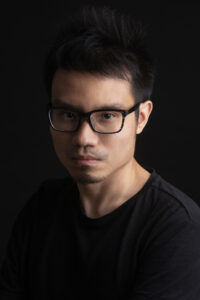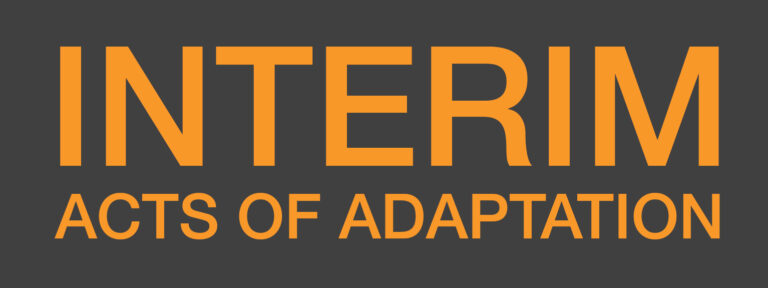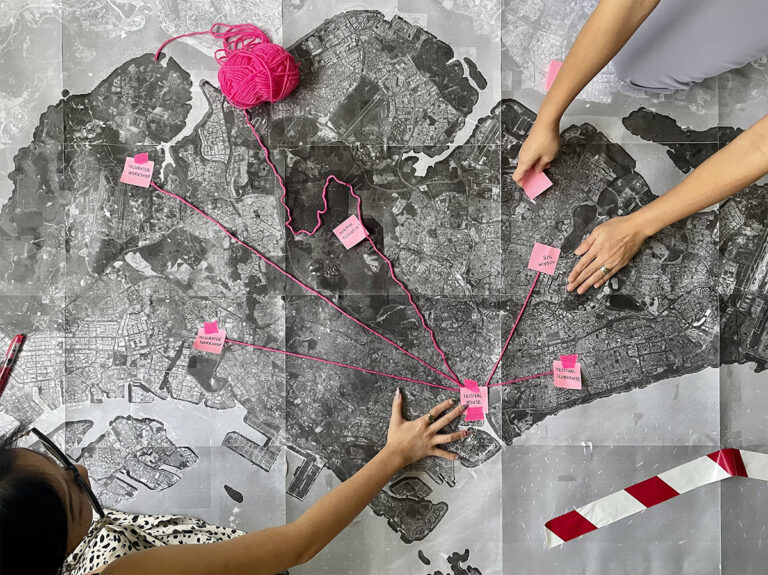The Singapore Institute of Architects (SIA) presents the highly-anticipated annual Singapore Archifest for its 17th iteration. Directed by Calvin Chua, the festival will run from 29 September to 28 October 2023.

Calvin Chua practices at the intersection of design, planning and advocacy. He runs Spatial Anatomy, a research-oriented design practice with an interest in urban adaptation and transformation. In parallel, Calvin teaches at SUTD and was most recently a Visiting Professor at the Korea National University of Arts. Complementing his practice, Calvin engages the wider design community through writing for international magazines and exhibiting at various international biennales, including Seoul and Venice. Recognised for his distinct approach to design practice, Calvin was an Asia 21 Next Generation Fellow in 2022 and a finalist for the Lisbon Triennale Debut Award 2022. A registered architect in the UK, Calvin graduated from the Architectural Association School of Architecture.
SIA together with the Archifest Team presents this year’s theme:
Evident in its planning and policy language, Singapore is no stranger to the ”interim” with its range of discrete, stopgap interventions facilitating the transformation of our city. As our urban landscape matures and navigates an increasingly volatile world, we can no longer afford to remain uneasy about the necessity of continual change. By challenging existing approaches to the construction of our built environment, ”Interim” prompts architects and stakeholders to explore a constant, incremental evolution of the city, which can empower us to anticipate and better manage the uncertainty evoked by broader social and ecological circumstances.
Festival Director Calvin Chua states,
“The city is a testbed, with architects as agents of change. This year’s festival is a lab for experimenting and demonstrating the ‘interim’.”
Calvin, alongside a young and diverse curatorial team, seeks to present visitors and fellow practitioners with a newer, different approach to the festival as a vessel of urban discourse. A dynamic line-up of festival programmes include the headliner main conference and exhibition, which showcases emerging local and regional architects’ interpretations of the festival theme. In addition, Archifest 2023 will also feature new programmes such as incubator design workshops examining pressing issues facing the built environment, residencies hosted by Figment Singapore which invite emerging architects and practitioners from the region to participate in ongoing conversations, as well as salon sessions to facilitate interactions between a variety of curated, diverse professional voices and perspectives.
In the true spirit of its theme, ”Interim” expands from a centralized festival experience by embedding meaningful architectural discourse into the physical landscape of the city. In place of a pavilion, Archifest 2023 reimagines the festival’s traditional centrepiece as multiple accessible urban objects to be inserted at various areas around the festival site. A series of urban installations, designed by young architects, designers and artists, and supported by URA’s Lively Places Fund, establish the festival’s physical presence through a dispersed activation of the historical and characterful Kampong Gelam district. These installations represent the potential ability of adaptive interventions to impress upon the physical landscape of the city beyond their footprints and lifetimes.
Kampong Gelam’s rich and layered history forms an interim urban trace of Singapore’s national development, providing the festival with an apt foundation for conversations surrounding urban transformation to be built upon. The dialogues born from the heart of the festival in Kampong Gelam will then further extend to other satellite sites via a suite of festival programming, thereby involving a greater range of stakeholders in broader discourse.
We invite fellow industry professionals to participate in this collective endeavour to explore the ”interim” as a new paradigm of architecture, in hopes of shaping a more resilient and sustainable future.


